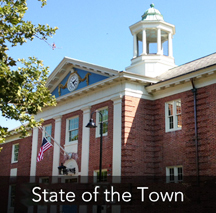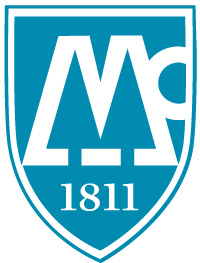 A report by the Solar PV Working Group concluded that the best site for a municipal solar photovoltaic array is the capped town landfill, with the roof of the public safety building coming in second.
A report by the Solar PV Working Group concluded that the best site for a municipal solar photovoltaic array is the capped town landfill, with the roof of the public safety building coming in second.
Solar Design Associates, a consulting firm hired by the solar working group, looked at 25 potential sites in town. A solar array at the transfer station could have a capacity of 1.4 MW, while a roof-mounted array on the public safety building could generate 58.6 kW. Selectman Renel Fredriksen summarized the report at the November 12 State of the Town meeting and said the group hoped to have a proposal to vote on at Town Meeting in March.
If and when a site is selected, the town would sign an agreement with a private firm to purchase, install and maintain the solar PV equipment, and in return, the town would receive lease payments and/or reduced electricity costs. In a 2015 report, BlueWave Capital said a solar installation on the landfill site could produce more than 50 percent of Lincoln’s municipal electricity.
One problem, though: the landfill is now designated as conservation land, and state law requires that if the town wants to open it to solar use, it must designate another parcel of the same size to offset the loss to the town’s inventory of conservation land. Officials had hoped that part of the Hargreaves-Heald property purchased by the town earlier this year could be used for this purpose, but the state has since said that this was not acceptable.
Removing land from conservation status requires unanimous approval by the Conservation Commission and two-thirds majority votes by Town Meeting and the state legislature.
The town and Minute Man National Historic Park would also have to renegotiate the easement given by the park to the town for access from Route 2A to the landfill. There is a “polite disagreement” with the park about what uses are permitted by that easement, “but once have a concrete proposal, we’ll resume that conversation,” Town Administrator Tim Higgins said.
Once a Lincoln School project is underway, the Ballfield Road campus is promising site for a future municipal solar PV array, as is the soon-to-be-rebuilt Minuteman High School, Fredriksen noted.
In the meantime, “there’s lots that we can do now to to change our electricity use, like getting a home energy assessments or buying more renewable energy,” said Green Energy Committee member Sue Klem, adding that residences account for 80 percent of electricity energy in town.



